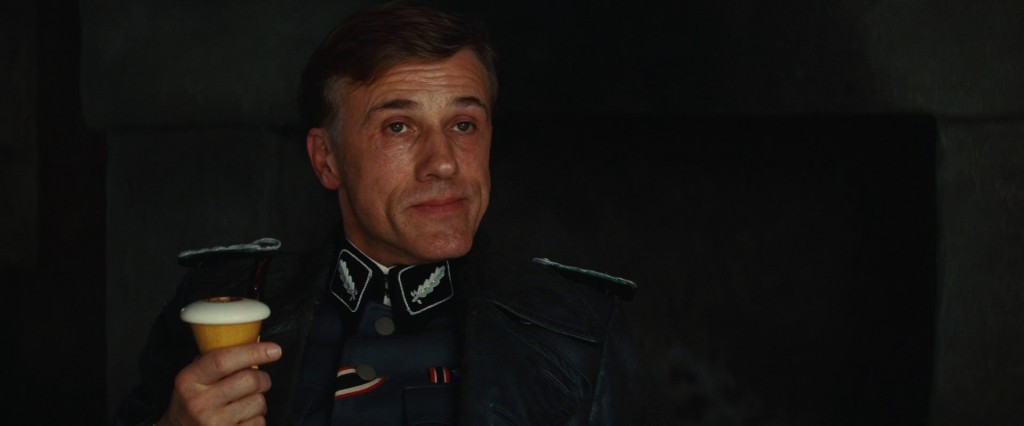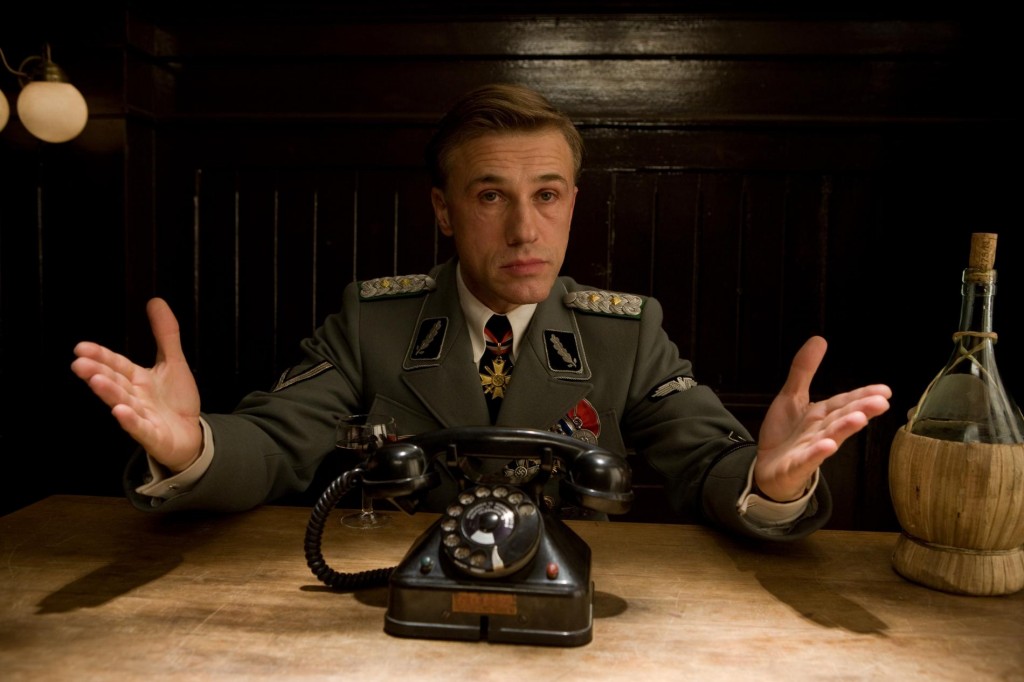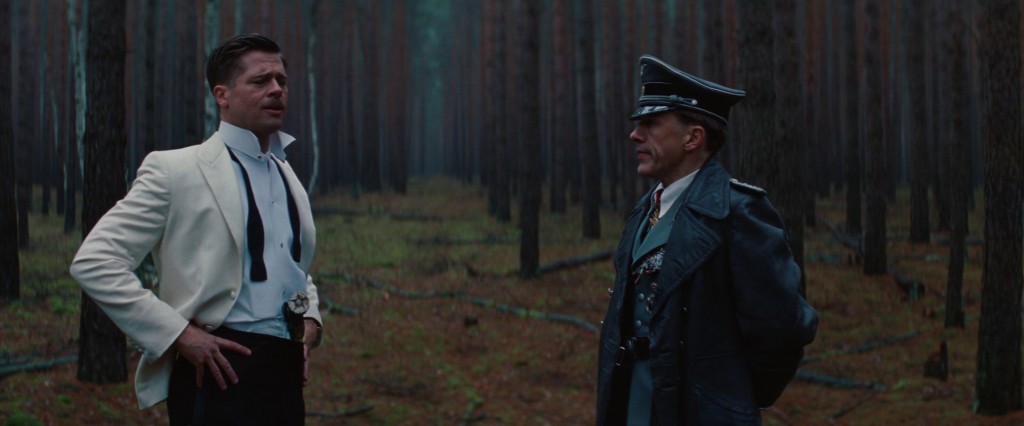Tarantino’s characters are dumb. Or, at the very least, many of his most recognizable characters, held in high esteem among the pantheon of cinema’s icons, are really super dumb. Look at the first three films of the beloved auteur’s career. Reservoir Dogs. Pulp Fiction. Jackie Brown. They have similarities right off the bat. Setting: Los Angeles. Genre: Crime. Characters: Dumb.
Reservoir Dogs revolves around a group of bickering criminals after a heist gone wrong. The men take turns floating harebrained theories as to how they got themselves into the current predicament. A rat? But, who? How? I don’t know, but no matter what, let’s stay in this warehouse to wait for further instructions from the person who might’ve set us up. Because remember, literally anyone who’s a part of this plan could’ve set us up. The flimsy logic holds up for two seconds if you don’t take into account these aren’t members of Mensa.
Fast-forward to Pulp Fiction, and behold, perhaps, one of the most charming dumb guys to ever grace the silver screen, Vincent Vega. There’s a reason Travolta is perfectly cast as Vega, and why someone like method actor-god Daniel Day Lewis, who desperately pursued the part, would’ve ruined the role and movie. A brief overview of Travolta’s career points to a man who doesn’t overthink things, except for when he does, and then we get Battlefield Earth. It’s the meathead philosophy that makes Vincent the cool bag-of-hammers who lives on in the minds of audiences everywhere. What does this soup-for-brains actually do in the movie? Well, he accidentally shoots someone in the face, he lets his boss’s wife overdose on heroin, he misses a possible sign from God, and so he ends up in Butch’s bathroom at the worst possible time. Besides dancing and talking about cheeseburgers, there’s not much to qualify him as a functioning member of society, let alone a successful career criminal.

Then, finally, Tarantino’s third film, Jackie Brown, and, again, an LA-story revolving around the exploits of some dumb criminals and, this time, one brilliant, strong, sexy flight attendant. The titular Jackie Brown (Pam Grier at her best) makes mince meat of her intellectually inferior match, Ordell Robbie (Samuel L. Jackson), and his even dumber henchman, Louis, who exists at an interesting moment of film, in particular. Louis is played by Robert “American Treasure” De Niro, who had done Goodfellas, Casino, and Heat within the past half-decade. Far from Heat‘s Neil McCauley and his ruthless, calculating, and near-unstoppable brain, Louis is an over the hill, out of shape, schlubby stoner who couldn’t put two and two together if you did the math for him. Yet, I’d consider him one of Tarantino’s crowning achievements and De Niro’s best performance of the ’90s, if not his career. De Niro transforms himself with a complete lack of posture or presence, which matches with the mumbling, stumbling dialogue that falls out of Louis’s head. He’s a perfect foil to the overconfident, talkative Ordell, who’s nothing more than middleman, but somehow gets himself and everyone into a deeper mess. This idiotic duo can’t remember where they park.
But after all those years of writing those types of characters, followed by a Kill Bill saga and a Grindhouse experiment, Tarantino shifts gears completely and creates one of the most cunning, brilliant, ruthless villains to ever put on a Nazi uniform: Colonel Hans Landa. Landa, like Tarantino’s criminal characters before him, is not without charm. He’s exceptional at his job by using his quick wit, controlled demeanor, and bubbling menace. It just so happens his job revolves around the capture and killing of Jews, something he shrugs off as a necessary evil after transitioning from a career as a detective. He’s a Nazi out of convenience more than anything else, which makes him simultaneously more three dimensional and awe-inspiringly repugnant.
His introduction, a scene that could stand alone as an impeccable short film, brings Landa to the home of a man he suspects of hiding Jews. Over the course of their conversation, the two men parry back and forth in four languages, two of which Landa speaks with ease. Then, after the Frenchman pulls out a pipe to smoke, the moment changes—Landa, the constant gentleman, asks if he may smoke his own. He lights his even bigger pipe, one reminiscent of the world’s greatest detective, and from there on out he runs roughshod over the man, who gives up the family he’s protected for months. It’s a master class in both dialogue and performance.

Not only is Landa smarter than the people he hunts, he’s smarter than the men hunting him. Methodically working his way through each clue and witness with the assured steps of a tightrope walker, he combs the aftermath of a basement barroom shootout making small and pointed observations; “Ah, Hugo. You’ve moved up in the world. Look at you, Lieutenant First Class.” He takes his time, enjoys himself, and unravels it all. His final discovery hides under the spilled blood, bullets, and beer. A single woman’s shoe left behind without a second thought. Over and over again, he’s the most capable man in the film. When others slip up, he picks up the slack and inches nearer.
When it comes to the final act, Landa becomes all the more important. He sees what his superiors cannot: WWII will not end favorably for the Germans. With this knowledge, and the knowledge of the Basterds’ impending attack, he pieces together another in a long line of opportunities that have carried him throughout the film. Here’s the true brilliance of Landa, the man while explaining how and why he believes Jews remain hidden and how he’s so qualified to find them, explains his entire existence:
“They are rats,” he says. “I can think like a rat.”
Whatever needs to be done to survive and thrive, he can and will do. Seeing the end for the Third Reich nearing means he needs a lifeboat, and his position of power allows him the chance to push others out of the way to row off alone if he so chooses. He parlays the assassinations of the Nazi High Command into a secured place on the victors’ side, a Medal of Honor, and some nice land on Nantucket Island. He can think like a rat because he is a rat. A rat three moves ahead.
Tarantino and his actors always seem to have a special bond with one another. Whether he’s resurrecting a career or launching one, his filmography nearly splits at the seams with larger than life roles matched with the exact right actor. Christoph Waltz, an unknown to American audiences, stepped into a role written for Leonardo DiCaprio and turned in the performance of a lifetime, at least until his next with Tarantino, Dr. King Shultz. Tarantino nearly threw in the towel on the production believing he’d written a role too difficult for any actor to play. That’s until Waltz came in. He’s able to infuse the character with the exact right amount of creep and control.
Waltz dances the line of paternal figure and domineering interrogator, wire to wire. With the film’s women, he’s sweet to the point of lulling them under a security blanket; until the moment he strangles one. He takes the same tack with the Basterds, but more openly shows his disappointment when he realizes he’s outclassed them. It’s hard to believe that Brad Pitt wearing a rope scar around his neck and doing a thick backwoods Tennessee accent could ever be outshone by an Austrian TV star, but he is.
It’s a testament to Tarantino’s ability as a filmmaker that he made a Spaghetti Western set in World War II about a group of Dirty Dozen-esque Nazi killers, but the undisputed champion of the film is actually the world’s greatest Nazi.


